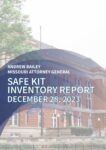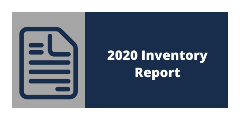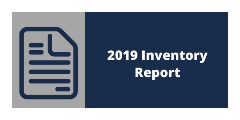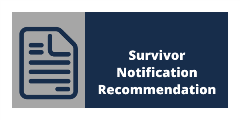The Sexual Assault Kit Initiative (SAKI) is a nationwide undertaking funded by the Bureau of Justice Assistance (BJA) at the United States Department of Justice (DOJ) that began in 2015. This initiative helps state and local jurisdictions across the country inventory and test sexual assault forensic evidence (SAFE) kits, upload eligible offender DNA profiles into a national database, investigate and prosecute cases in which offender DNA profiles match, or “hit,” against existing records in the database, and develop procedural and evidence tracking capacity to prevent future backlogs. Nationwide, since 2015 to March 2022, the SAKI program has inventoried 146,278 SAFE kits, sent 83,201 kits for testing, with 13,961 resulting Combined DNA Index System (CODIS) hits within 76 jurisdictions. Missouri’s SAFE Kit Initiative within the Missouri Attorney General’s Office (AGO) is one of the 26 statewide sites funded by the federal SAKI grant. The term SAKI refers to the federal grant program and the term SAFE Kit Initiative refers to the Missouri AGO’s statewide program to eliminate the backlog of sexual assault kits.
In 2018, fueled by the number of untested sexual assault kits reported in an informal survey of law enforcement agencies and hospitals, the AGO and the Missouri General Assembly took definitive action to address the statewide backlog of untested sexual assault kits.
Since April 2018 the AGO applied for and received two separate three-year SAKI grants from BJA. The AGO SAFE Kit Initiative team currently implements a 2018 SAKI Grant and a 2020 SAKI Grant.
Major elements of the two AGO’s SAKI grants include the:
- Creation of a Multi-Disciplinary Working Group: The processing of a SAFE kit and the investigation and prosecution of the related sexual assault involves a multitude of stakeholders and practitioners. To ensure a holistic approach to Missouri’s SAFE Kit Initiative, the AGO has formed a multi-disciplinary working group (MDWG) made up of law enforcement, forensic laboratory staff, prosecutors, healthcare providers, and victim advocates. The MDWG first met in October 2018 and continues to provide invaluable guidance and perspective to the AGO as the initiative progresses.
- Sexual Assault Kit Initiative Statewide Coordinator: The day-to-day operations of the AGO SAFE Kit Initiative is managed by an experienced leader to ensure seamless statewide coordination on efforts between staff and stakeholders.
- Completion of a Statewide Inventory of SAFE Kits: The most pressing issue facing the SAFE Kits Initiative is the backlog of untested SAFE kits across Missouri. The first major step of the initiative has been conducting a detailed inventory of all organizations in Missouri that may possess SAFE kits. The 2018 SAKI inventory covers untested kits collected prior to April 30, 2018 as well as tested kits collected on or before December 31, 1997. The 2020 SAKI inventory covers untested kits collected prior to April 16, 2020 as well as tested kits collected January 1, 1998 or after. (See 2020 “Inventory Scope” insert on page 11). This includes law enforcement agencies and healthcare providers as well as ancillary organizations such as rape crisis centers and prisons. In accordance with BJA requirements, the AGO maintains the 2018 inventory and 2020 inventory results separately for grant reporting purposes. The AGO previously released the 2018 SAFE Kits Initiative Inventory Report on November 20, 2019. This report describes the 2020 SAKI Grant inventory findings.
- Testing of Inventoried SAFE Kits: Backlogged SAFE kits discovered by the inventory will be tested with the assistance of contracted private DNA testing providers to prevent backlogged kits from overwhelming the Missouri State Highway Patrol (MSHP) crime lab’s processing of contemporary (current) kits.
- Upload of Eligible DNA Results to CODIS: As SAFE kits are tested, results that satisfy eligibility criteria will be uploaded to the Combined DNA Index System (CODIS). CODIS is a national database of DNA profiles from both known and unknown offenders and arrestees. As DNA profiles are uploaded, they are compared against existing records for matches, or “hits,” which are used to connect cases and identify perpetrators. As SAFE kits from the inventory are tested, eligible results will be uploaded to CODIS to further investigations.
- Upload of Case Information to ViCAP: Eligible cases handled as part of the SAFE Kits Initiative will be entered into the Federal Bureau of Investigation’s (FBI’s) Violent Criminal Apprehension Program (ViCAP) database. ViCAP is a national repository for comprehensive case information for violent crimes such as homicides, sexual assaults, missing persons, and unidentified human remains. ViCAP aids law enforcement in connecting cases across jurisdictional boundaries through offender behavior or modus operandi (MO) and related details in cases rather than DNA.
- Assistance of Investigations and Prosecutions of CODIS Hits: CODIS hits will be used to develop investigative leads that will be provided to the detectives of the local jurisdiction from which the SAFE kit originates. The AGO will provide investigatory and prosecutorial assistance to local jurisdictions as requested to ensure that offenders are brought to justice. The 2020 SAKI Grant provides funding for a dedicated AGO cold case investigator.
- Development of a Statewide Evidence Tracking System: (2018 SAKI Grant) To prevent a backlog of SAFE kits from developing in the future, the AGO has developed an evidence tracking system (ETS) that will track SAFE kits from production through case adjudication as it moves between organizations during the process. The ETS will provide local jurisdictions a free tool for complete awareness of the status and location of relevant SAFE kits as well as allowing victims of sexual assault to monitor the status of their kit throughout the criminal justice process.
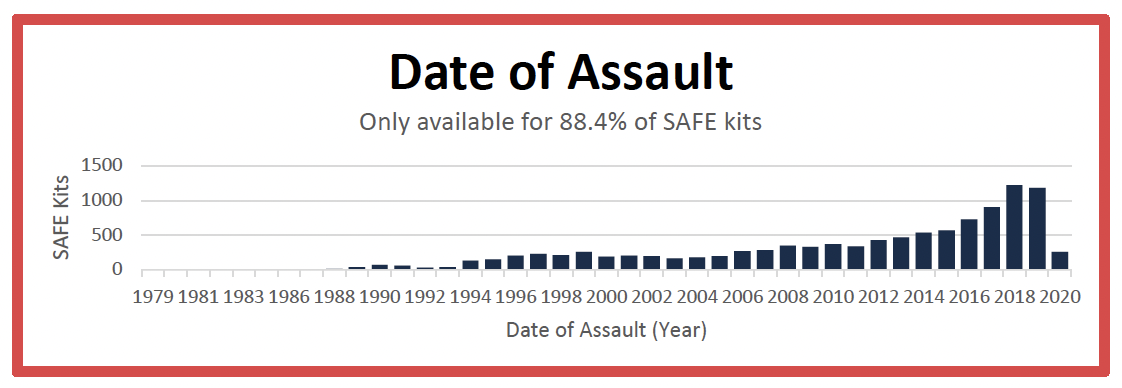
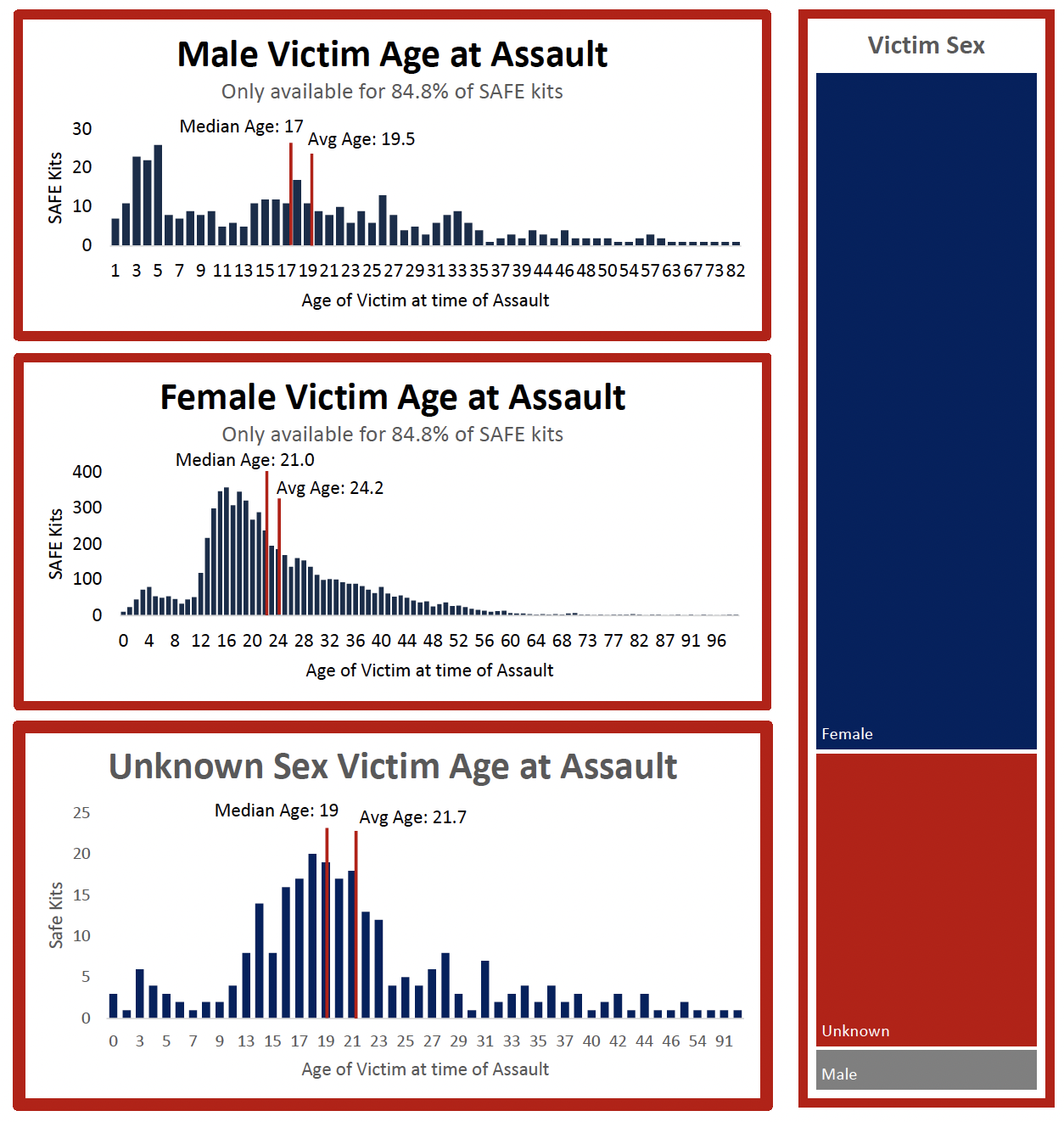
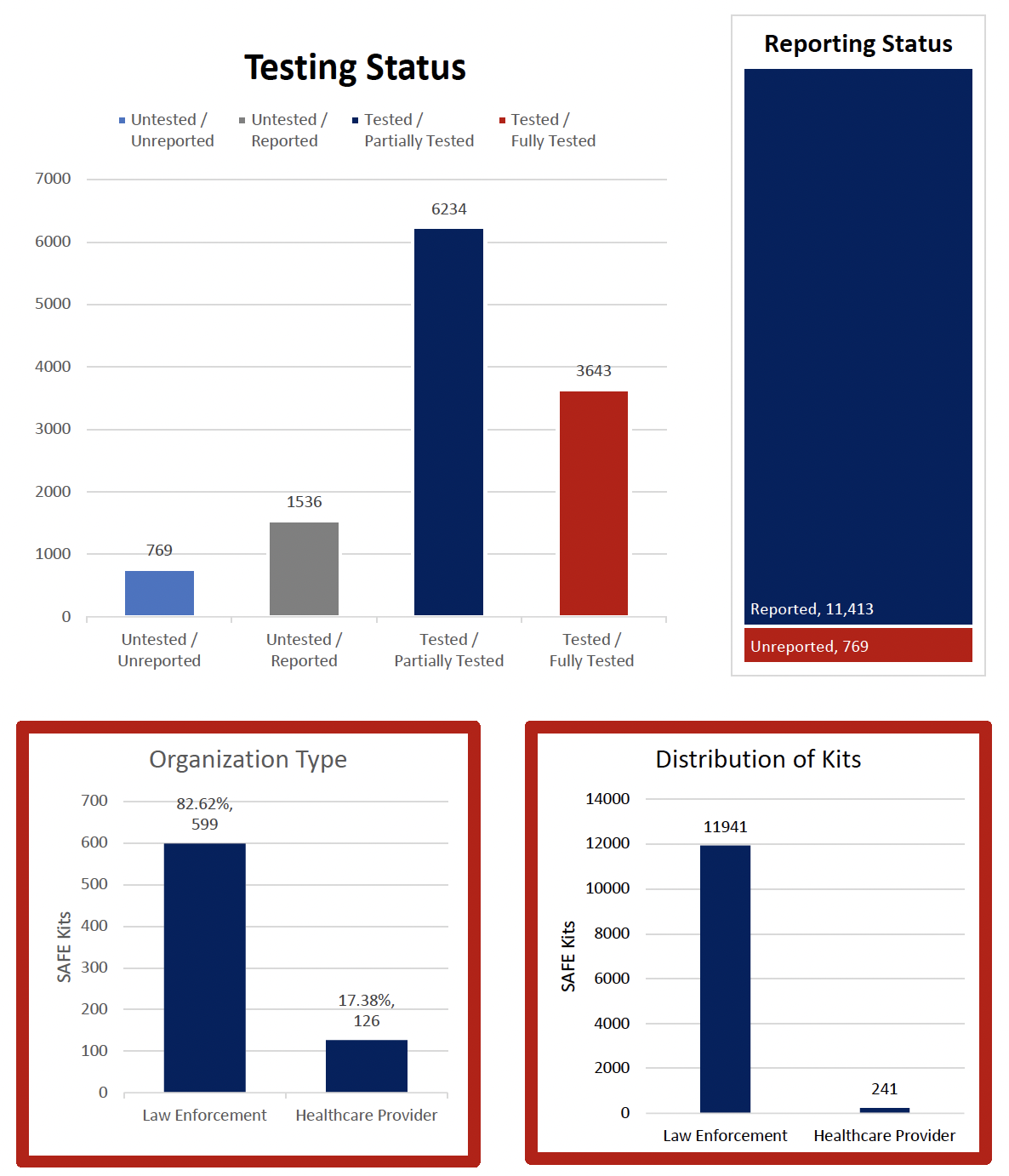
This Web site is funded in part through a grant from the Bureau of Justice Assistance, Office of Justice Programs, U.S. Department of Justice. Neither the U.S. Department of Justice nor any of its components operate, control, are responsible for, or necessarily endorse, this Web site (including, without limitation, its content, technical infrastructure, and policies, and any services or tools provided).


